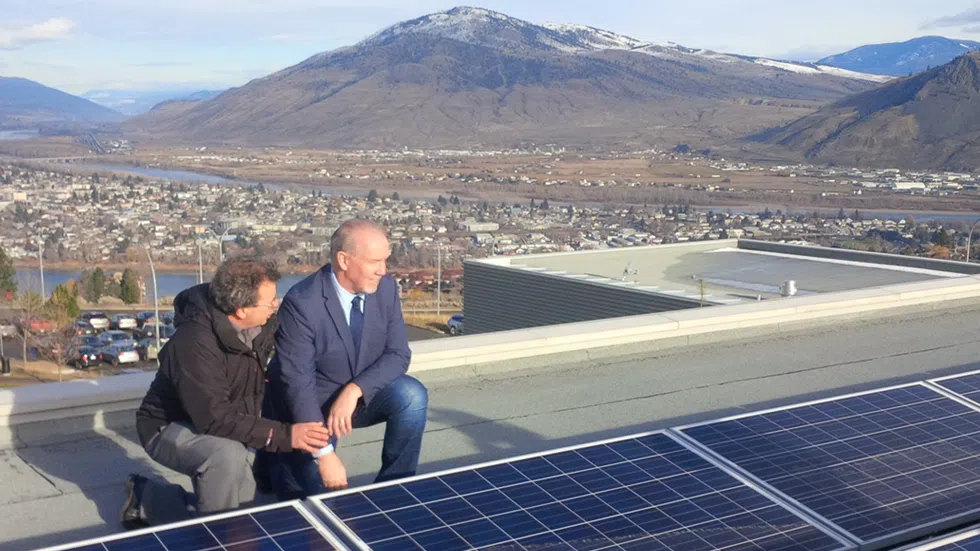
Opposition leader pushing for more energy efficiency
KAMLOOPS — It’s been a year since Ben Giudici and his team at Riverside Energy Systems installed 40 solar panels on the roof of the Campus Activity Centre at TRU, and there have been great results so far.
“The system has actually produced a little bit more energy than we predicted it would. The fact that it has excellent sun exposure on this roof top has made quite a big difference,” says Guicidi, whose company is in the process of installing solar panels for the city at West Highlands Park in Aberdeen.
In the past 12 months, these solar panels have produced around 12,500 kilowatt hours, the equivalent of a year’s worth of energy for a single family home.


